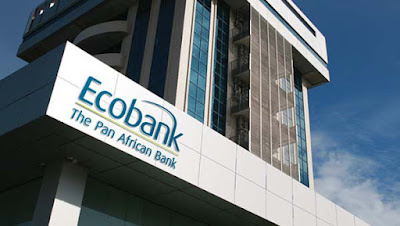Ecobank is reviewing its expansion strategy following a decline in profits and may pull out of some African countries to focus on its most promising markets, chairman, Emmanuel Ikazoboh, told Reuters.
Ecobank is based in Togo and operates in 36 African countries, making it a rare example of a pan-African bank that has developed outside South Africa, home to giants such as Standard Bank and FirstRand.
Ecobank is based in Togo and operates in 36 African countries, making it a rare example of a pan-African bank that has developed outside South Africa, home to giants such as Standard Bank and FirstRand.
But falling global commodity prices that have hit economies in countries such as Nigeria and Ghana have caused revenue to slow, profits to fall and triggered a shift in approach.
“The business model whereby we are just expanding and posting our flags (in different countries) has to be reconsidered,” Ikazoboh said in an interview on Friday after the bank’s annual shareholders’ meeting at its headquarters in Lome.
Ecobank is dividing its operations into three “pockets” according to their potential, said Ikazoboh, who is chairman of parent company, Ecobank Transnational Incorporated (ETI). ETI had $22.5 billion of assets in 2013 and employs over 20,000 people.
Ecobank’s biggest operation is in Nigeria and there the bank wants to increase market share. It also sees Kenya as its pivotal market in East Africa and hopes to take advantage of Rwanda’s rapid economic growth, spokesman Richard Uku said.
“In the last ‘pocket’ (of least promising countries) we really want to take a decision as to whether we continue to operate in those markets,” said Ikazoboh, adding decisions would be taken within months.
Sources close to the bank said this could apply to some small markets in eastern and central Africa, as well as countries such as Sao Tome and Principe.
In addition, the bank’s biggest shareholders, South Africa’s Nedbank and Qatar National Bank (QNB) will increasingly drive business in South and North Africa respectively, Ikazoboh said.
The downturn in oil and mineral prices has battered African currencies, slowed some economies and forced change in the banking sector. In one sign of its impact, Barclays said in March it would cut its 62 percent stake in Barclays Africa Group.
Ecobank’s pretax profit was $205 million in 2015, down from $520 million the previous year, a result that CEO Ade Ayeyemi said was “unquestionably disappointing”. The bank said in April it expected flat loan growth and revenue this year. It said on Friday it would pay a dividend of $48.2 million.

Comments
Post a Comment